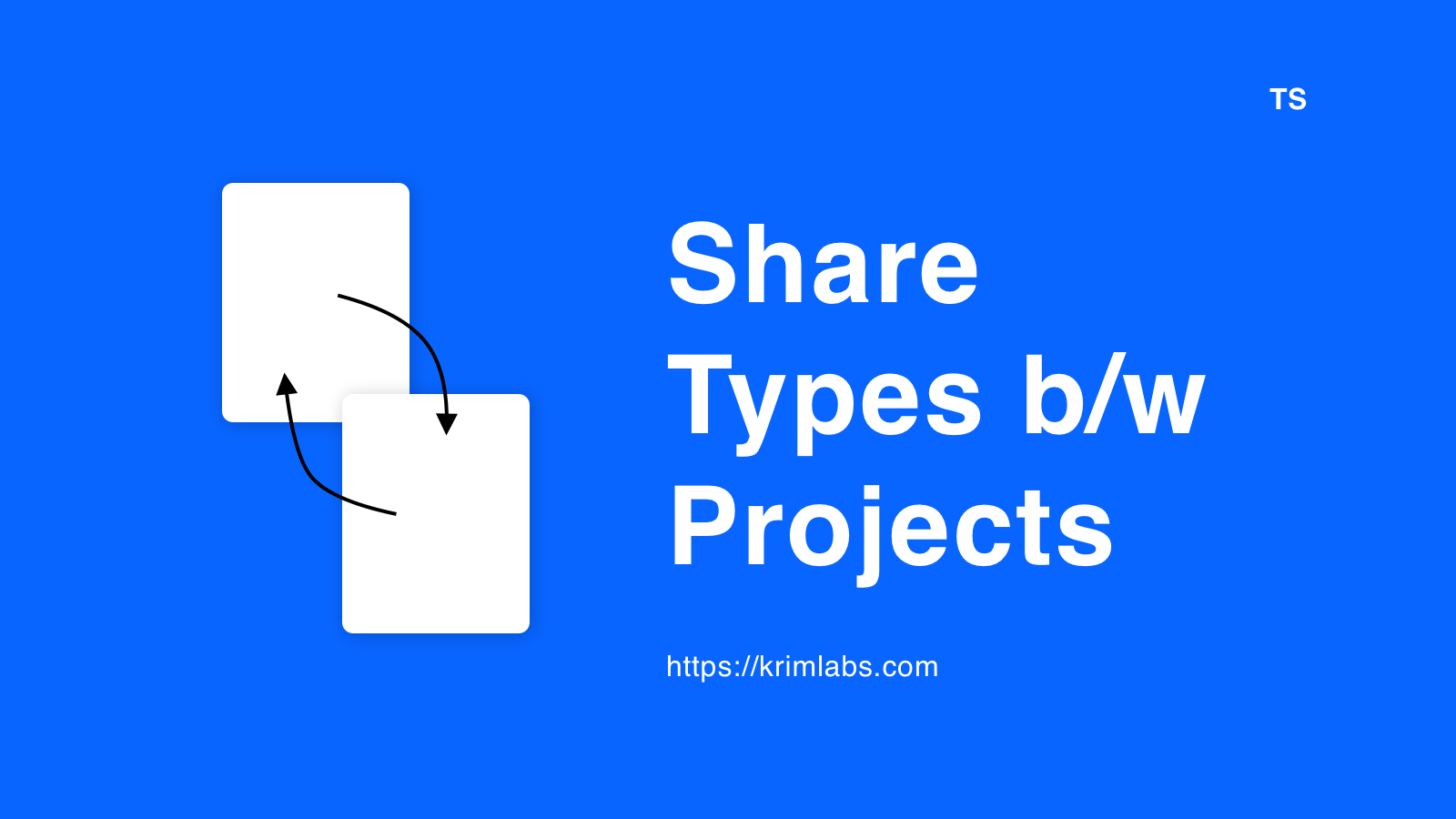How to Share Type Definitions Between TypeScript Projects
An alternative approach to Project References, aliasing and Shared Repos


In modern web development, ensuring consistency between the backend and frontend is crucial, especially when dealing with TypeScript types. Sharing these types between the backend and frontend can streamline your development process, reduce errors, and improve overall maintainability. This guide outlines an effective technique to share TypeScript types between your backend and frontend projects using rsync and nodemon.
Problem
When developing a web application, both the frontend and backend often need to use the same data types. Duplicating type definitions across both projects can lead to inconsistencies and additional maintenance overhead. A better approach is to have a single source of truth for these types and automatically share them between projects.
Solution
We'll use rsync to copy type definition files (.types.ts) from one project to another and nodemon to watch for changes and trigger the copy process automatically.
Step-by-Step Implementation
1. Project Structure
Assume you have two separate projects: one for the frontend (ui.project) and one for the backend (api.project). Both projects have a src/domain directory containing the TypeScript files and type definition files.
/api.project
└── /src
└── /domain
├── auth.ts
└── auth.types.ts
/ui.project
└── /src
└── /domain
├── auth.ts
└── auth.types.ts
For this article, we are going to use bun runtime. We'll also need nodemon, rsync and npm-run-all:
bun add nodemon npm-run-all
Most UNIX like systems have rsync built in.
2. Frontend Configuration
In the package.json of your frontend project, add the following scripts:
{
"scripts": {
"dev:copy-types-to-api": "rsync -av --include='*/' --include='*.types.ts' --exclude='*' src/domain ../api.project/ui.types",
"dev:watch:copy-types-to-api": "bun nodemon --quiet --watch src/domain --ext ts --exec bun dev:copy-types-to-api",
"dev:start": "vite",
"dev": "bun run-p dev:start dev:watch:copy-types-to-api"
}
}
3. Backend Configuration
In the package.json of your backend project, add the following scripts:
{
"scripts": {
"dev:start": "bun src/server.ts",
"dev:copy-types-to-ui": "rsync -av --include='*/' --include='*.types.ts' --exclude='*' src/domain ../ui.project/api.types",
"dev:watch:copy-types-to-ui": "bun nodemon --quiet --watch src/domain --ext ts --exec bun dev:copy-types-to-ui",
"dev": "bun run-p dev:start dev:watch:copy-types-to-ui"
}
}
4. Adding Import Aliases
To make it easy to import the shared types in both projects, you can set up import aliases in your TypeScript configuration files (tsconfig.json). This allows you to import types using a consistent and clear path, regardless of where they originated.
In the Frontend Project Update your tsconfig.json to include an alias for the types copied from the backend:
{
"compilerOptions": {
"baseUrl": "./",
"paths": {
"@api-types/*": ["./api.types/*"]
}
}
}
You can now import types from the backend in your frontend code like this:
import { AuthType } from '@api-types/auth.types';
In the Backend Project
Similarly, update the tsconfig.json in your backend project to include an alias for the types copied from the frontend:
Copy code
{
"compilerOptions": {
"baseUrl": "./",
"paths": {
"@ui-types/*": ["./ui.types/*"]
}
}
}
Now you can import types from the frontend in your backend code like this:
import { AuthType } from '@ui-types/auth.types';
How It Works
- Copying Types: The
dev:copy-types-to-apiscript in the frontend project and thedev:copy-types-to-uiscript in the backend project usersyncto copy*.types.tsfiles from one project to the corresponding directory in the other project. - Watching for Changes: The
dev:watch:copy-types-to-apianddev:watch:copy-types-to-uiscripts usenodemonto watch for changes in thesrc/domaindirectory. When changes are detected, the respective copy script is executed. - Running Both Processes: The
devscript in both projects runs the development server (dev:start) and the watch process simultaneously usingrun-p.run-pis a part ofnpm-run-allpackage.
Conclusion
By adding import aliases in your tsconfig.json, you simplify the import statements and make your code more readable. This, combined with the automated type sharing setup, ensures a smooth and efficient development process with consistent type definitions across your frontend and backend projects.
